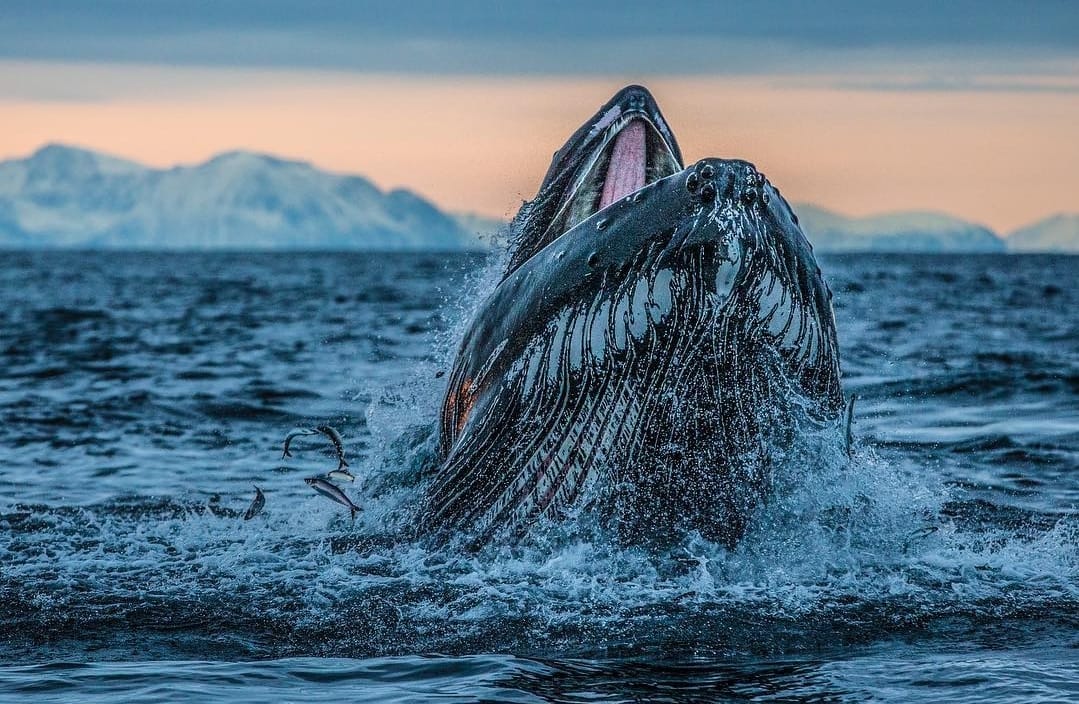Mark SimmondsDirector of Science
Whales lock away up to 400,000 tonnes of carbon annually.
Climate Giants – How whales help to fight climate change
New research published: A new scientific paper shines a powerful new light on the important role of whales in storing away carbon, how whaling has affected this and how climate change will affect it in the future.
The five species of baleen whales found in the southern hemisphere in the pre-whaling period removed thousands of tonnes of carbon each year. By 1972, this capacity had been reduced to only 15% of the original removal rate because of all the whales that had been killed. With some whale populations recovering, they are again removing and locking away an increasing quantity of carbon, although their full recovery, and therefore their role in carbon-capture, is now itself threatened by climate change.
New climate research
Rising levels of carbon dioxide in the atmosphere are a powerful driver of climate change. The oceans play an important role in climate regulation and have absorbed about 23% of human generated CO2 emissions. Whales are, because they are such large animals, store vast amounts of carbon in their bodies during their lifetimes. When they naturally die, these massive animals sink swiftly to the seabed where the carbon may be locked away for centuries. A team of researchers from France, Canada and the USA have just published a ground-breaking investigation that quantifies the relationship between whales and climate change. Their paper entitled «Recovery of Carbon Benefits by Overharvested Baleen Whale Populations is Threatened by Climate Change» is available online.
Carbon removal by whales
The researchers used highly sophisticated computer-based simulations of the whale populations run over various time periods. They first modelled the amount of carbon removed by the five baleen whale species found in the southern hemisphere – fin, blue, humpback, minke, and southern right – when they were at pre-exploitation population levels. They found that the whales would lock away 400,000 tonnes of carbon annually. A huge quantity. They also found that the biggest species, the fin and blue whales, were especially important in removing carbon.
In a second modelling exercise, the research group looked at carbon removal by these same whale species in the period from 1890 to 2100 under two scenarios. In the scenario without climate change, whale-driven carbon removal was projected to reach 320,000 tonnes of carbon annually in 2100. In the scenario that includes climate change and its likely inhibiting effects on whale recovery, carbon removal was projected to only reach 170,000 tonnes of carbon annually by the end of the century, which is less than half of the pre-exploitation figure.
This reinforces the idea that whales are important in carbon capture and provides another good reason to conserve and protect them. That their carbon capture capacity will be reduced by climate change is unfortunate and this reduction is primarily explained by changes in the abundance of the whales’ primary prey, krill, a shrimp-like crustacean found in the Southern Ocean.
Crucial for conservation
The authors of this paper also make some other interesting points. They note that their study was limited to only five baleen whale species but that there are fifteen worldwide, so they may have significantly underestimated the importance of whales in removing carbon at a global scale. They also note the role of whales in efficiently recycling nutrients and boosting the primary productivity of the oceans. Whales in the Southern Ocean, for example, play a critical role because they feed on krill which accumulate iron, a nutrient in short supply in this ocean. The whales then produce iron-rich faeces which is liquid and buoyant and, in the sunlit upper layer of the sea, fertilises the growth of the plant plankton that krill feed on.
In conclusion, the scientists «call for protection and restoration of whale populations» in the name of climate change mitigation. At OceanCare, we appreciate that the health of the world’s oceans is important for our survival and, at a time when nations are urgently discussing how to limit global warming, we encourage them to recognize the «ecosystems services» provided by the whales, including the role that these ocean giants play in locking carbon away. Ignorance of consequences might be seen as a rational explanation for some human actions in the past, but now we know better and for our own good we need to make every effort to save the whales and work to protect and restore the health of the oceans.
Photo: Paul Nicklen
